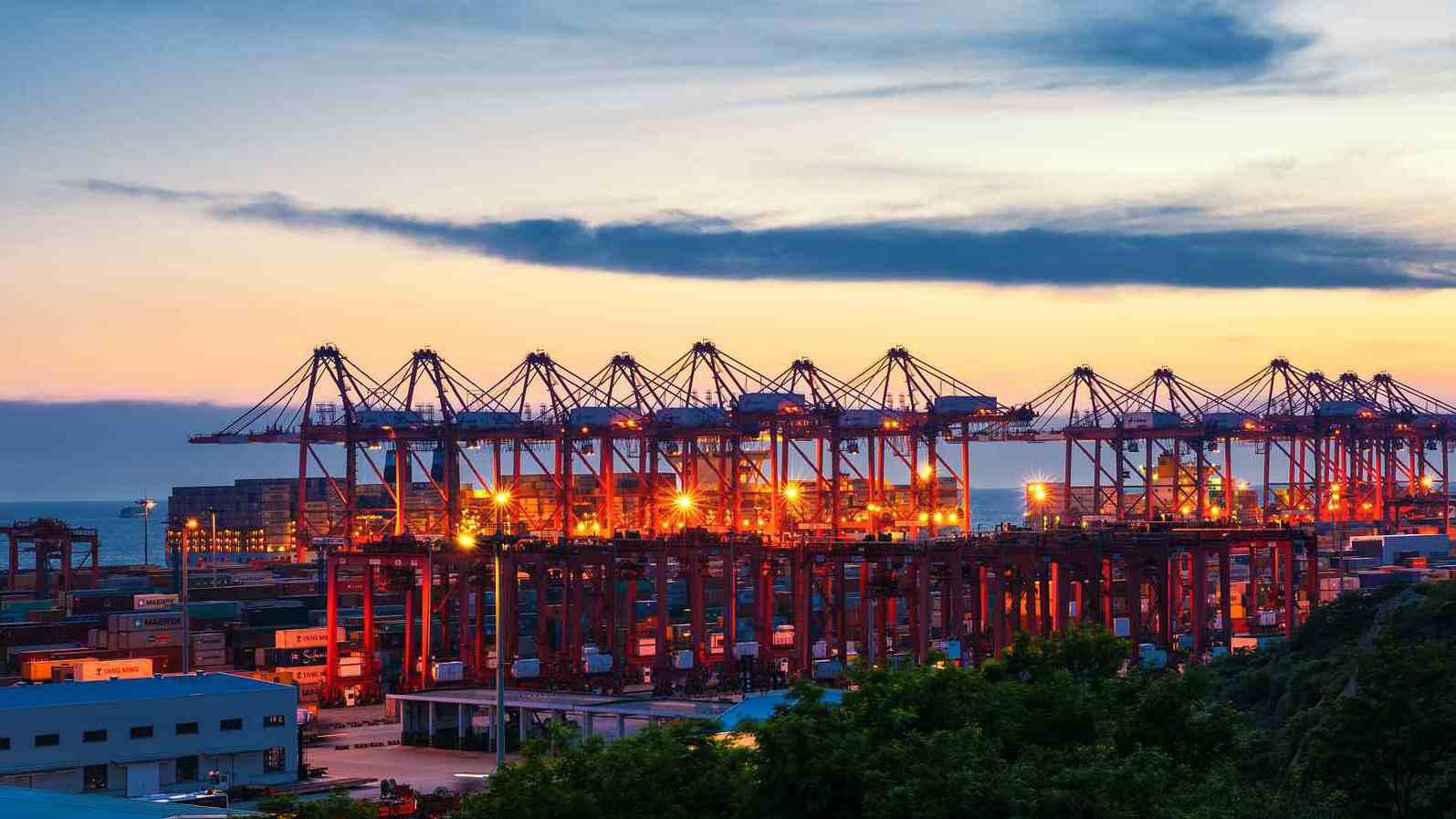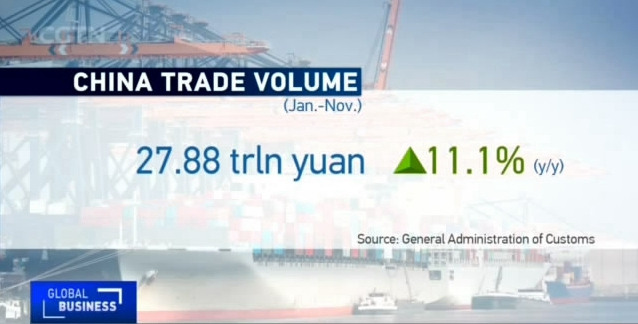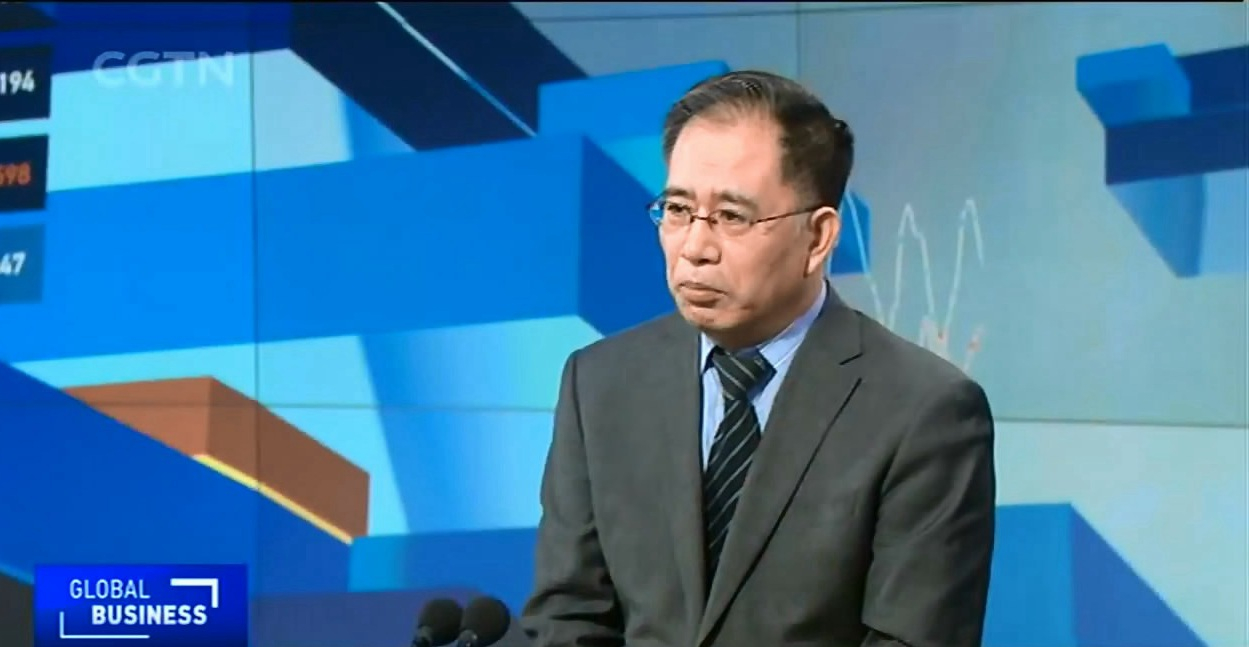
Economy
22:08, 26-Dec-2018
China's trade sector in 2018 is more complex but less pessimistic: experts
Updated
22:05, 29-Dec-2018
By CGTN’s Global Business
03:52

The Central Economic Work Conference explicitly pointed out that the trade sector is a key focus in China's reform and opening-up. And despite the looming China-U.S. trade war, China's trade sector in 2018 was not as pessimistic as people had anticipated, according to Liu Baocheng, the dean of the Center for International Business Ethics at the University of International Business and Economics.
"It's a more complex picture for this year," Liu admitted, adding that "the overall performance was not as pessimistic as people had anticipated."
China's trade volume from January to November surged 11 percent compared to the same period last year, reaching more than 27 trillion yuan (nearly four trillion U.S. dollars). And the January-to-November trade volume has already surpassed that of all of last year.

China's trade volume from January to November 2018 reached more than 27 trillion yuan. / CGTN Photo
China's trade volume from January to November 2018 reached more than 27 trillion yuan. / CGTN Photo
Chinese General Administration of Customs said that the country's trade surplus slipped more than 21 percent during the first 11 months of this year, mainly due to faster import growth than export growth. Official data also showed that China's imports totaled almost 13 trillion yuan (1.8 trillion U.S. dollars) during the same period, jumping more than 14 percent. Meanwhile, China's exports grew eight percent to almost 15 trillion yuan (2.1 trillion U.S. dollars).
"In the first half of the year, there was quite a surge. Exporters had been worried about the fluctuations due to the trade war. And the momentum was losing the steam by the second half of the year," Liu further explained.
Meanwhile, the conference said that China should diversify its export markets and reduce import costs, which was echoed by the expert.
"In terms of export market, we see a more diversified approach by the Chinese exporters. And of course, we are very decisive to enlarge import volume. So that would really contribute to the global balance, in the meantime, to serve Chinese consumption -- a major driver for GDP growth," Liu said.

Liu Baocheng, the dean of the Center for International Business Ethics at the University of International Business and Economics, during a studio interview with Global Business in Beijing, China. /CGTN Photo
Liu Baocheng, the dean of the Center for International Business Ethics at the University of International Business and Economics, during a studio interview with Global Business in Beijing, China. /CGTN Photo
However, "uncertainty is still looming ahead," Liu warned. The Central Economic Work Conference cited for the first time that China should adapt to new circumstances and grasp fresh characteristics of global trade.
The conference claimed that China would push the transition from controlling goods and elements to making rules. Ministry of Commerce officials elaborated that the proposal signaled that the government would concentrate on drawing up regulations but also allow companies to decide how to allocate resources in the future.
"China maintains a very consistent attitude that we are not really there to fight the trade war, but we have to respond. And now we are responding more proactively by improving the domestic business environment, fueling the private sector and enlarging the access for foreign participation. China does command the respect from the global community that 'We are sincere. We recognize the problem, and we are moving ahead.'" Liu noted.

SITEMAP
Copyright © 2018 CGTN. Beijing ICP prepared NO.16065310-3
Copyright © 2018 CGTN. Beijing ICP prepared NO.16065310-3